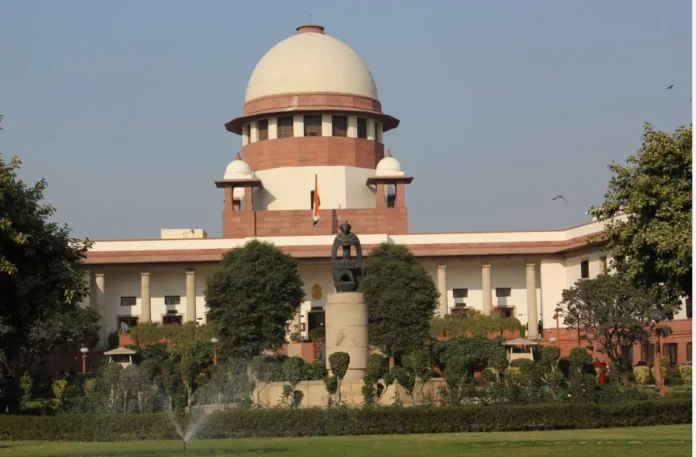Expressing strong displeasure over the long list of cases involving temples in Uttar Pradesh, especially in the district of Mathura, the Supreme Court on Tuesday directed the Principal District Judge at Mathura to file a detailed report on the temples in Mathura, which were entangled in litigation and the court receivers appointed during such legal battles.
The Bench of Justice Bela M Trivedi and Justice Satish Chandra Sharma observed that the issues of temple administration and the appointment of Receivers in the suits pertaining to the temple administration appeared to have become the most difficult conundrum for the Courts and very lucrative court proceedings for Advocates in the State of Uttar Pradesh, especially in Mathura district.
Such advocates may have a vested interest in keeping temple litigation pending for personal gain, since they remained in control of temple affairs until such court cases came to an end, it noted.
The Bench said the courts, which were considered as temples of justice, could not be permitted to be used or misused for the benefit of a group of people, who would have vested interest in prolonging the litigations. Nobody should be permitted to abuse or misuse the process of law under the guise of prolonged litigations in the Court.
The top court of the country directed the Principal District Judge at Mathura to include in the report details about the time since when such litigations have been pending and the status of such proceedings.
The report should further include the names and status of such persons, particularly advocates, who were appointed as court commissioners.
The Bench further sought details on remuneration, if any, being paid to the Receivers appointed in such proceedings and listed the matter for further hearing on December 19.
The order was passed on a petition challenging the August 27 order of the Allahabad High Court, which expressed serious concern over the large number of pending temple-related litigation in the State.
The High Court had observed that advocates and district officials should ideally not be appointed as court receivers (officers appointed to take over temple management to protect the temple while a court case is pending).
Instead, the courts should make every endeavour to appoint a receiver, who was connected with the management of a temple and had some religious leaning towards the deity.
It observed that people would lose faith if the temples and religious trusts were not managed and run by persons belonging to religious fraternity but by outsiders. Such actions should be prevented at the very beginning.
Lamenting that receivership had become a status symbol in Mathura, the High Court had said that the time had come to free the temples from the ‘clutches’ of practising advocates of Mathura court.
As per the High Court, a practising lawyer could not devote sufficient time for the administration and management of temples, especially of Vrindavan and Govardhan, which needed skill in the temple management along with full devotion and dedication.
Under the garb of provisions of the Code of Civil Procedure, courts could not prolong temple litigation in this manner or run the temple through a receiver without making any effort to decide the dispute, it had added.


